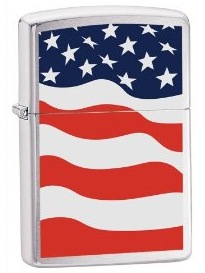Stogie Commentary: Free Speech for Tobacco
10 Sep 2009
There I was, enjoying a relaxing Labor Day weekend of golf, cigars, barbecue and camaraderie, when I read an editorial so horrible, so anti-tobacco and anti-freedom, that it required a response. The New York Times took to it’s hallowed pages to write “Big Tobacco Strikes Back,” an editorial against a lawsuit filed by tobacco companies seeking to challenge new restrictions on advertising created by the recent bill that subjects tobacco to the jurisdiction of the FDA.
 The title itself speaks to the problems with the article. “Big Tobacco” may not be a mom and pop operation, but those entrepreneurs are up against something far bigger—the federal government. So if it’s “Big Tobacco,” who are they striking back against? “Colossal Government”?
The title itself speaks to the problems with the article. “Big Tobacco” may not be a mom and pop operation, but those entrepreneurs are up against something far bigger—the federal government. So if it’s “Big Tobacco,” who are they striking back against? “Colossal Government”?
And then there’s the issue of who is actually suing to advance their free speech rights. While you wouldn’t know it from the editorial, the “tobacco companies” at issue don’t include the largest cigarette company in the world, Altria.
Altria, with its 40% plus market share in cigarettes, was a key supporter of the FDA regulation bill. The company knows that the bill’s advertising restrictions will protect its dominant market share. Those restrictions includes bans on sponsorships for sporting events, bans on ads using anything other than black text on a white background, and a ban on advertising products as “light” or safer, even if truthful.
The Times, and the anti-smoking lobbyists who no doubt inform its opinion, take the position that advertising of tobacco products can be banned if children might be exposed to it. Never mind that the ads target adults; it would be virtually impossible to advertise to adults without some exposure by children. Perhaps even worse, their opposition to tobacco companies informing consumers of how to reduce the harms caused by smoking leaves smokers in the dark about ways to reduce risks. (As to any false claims that cigarette companies might make, surely there are enough trial lawyers looking for a payday to ensure that companies don’t lie about their products.)
The editorial’s view isn’t compatible with the Constitution’s protections of free speech, enshrined in the First Amendment. After all, a corporation is just a group of shareholders who all have the right to tell their fellow citizens about their legal product. Which is why the editorial amounts to nothing more than a screed against companies attempting to assert their guaranteed constitutional rights.
Which brings me to cigars. While we cigar enthusiasts aren’t always pleased with cigarette companies, we should support this effort to overturn the FDA’s free speech ban. It isn’t just a hypothetical that cigars will be the next target. They already are.
photo credit: Amazon

 Patrick Ashby
Co-Founder & Editor in Chief
Patrick Ashby
Co-Founder & Editor in Chief Patrick Semmens
Co-Founder & Publisher
Patrick Semmens
Co-Founder & Publisher George Edmonson
Tampa Bureau Chief
George Edmonson
Tampa Bureau Chief
Great article, Patrick. As with many things going on in this country today, the bottom line in all of this is about preservation of freedom, in this case the simple joy and pleasure of lighting up a cigar after a long day of work, or when you step on the golf course, or when you're just hanging with friends.
I'm pretty confident many of the FDA bill's advertising provisions will not survive the court challenge.
Even Altria has said it has First Amendment concerns with the law, although it is not challenging them in court at this time.
I keep wondering how long it is before the alcohol industry is going to catch the eye of government as the next cash cow ripe for the pickin'.